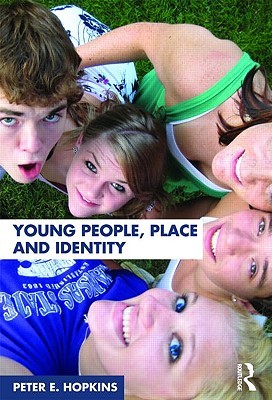

Most ebook files are in PDF format, so you can easily read them using various software such as Foxit Reader or directly on the Google Chrome browser.
Some ebook files are released by publishers in other formats such as .awz, .mobi, .epub, .fb2, etc. You may need to install specific software to read these formats on mobile/PC, such as Calibre.
Please read the tutorial at this link: https://ebookbell.com/faq
We offer FREE conversion to the popular formats you request; however, this may take some time. Therefore, right after payment, please email us, and we will try to provide the service as quickly as possible.
For some exceptional file formats or broken links (if any), please refrain from opening any disputes. Instead, email us first, and we will try to assist within a maximum of 6 hours.
EbookBell Team

4.7
36 reviewsYoung People, Place and Identity offers a series of rich insights into young people's everyday lives. What places do young people engage with on a daily basis? How do they use these places? How do their identities influence these contexts? By working through common-sense understandings of young people's behaviours and the places they occupy, the author seeks to answer these and other questions. In doing so the book challenges and re-shapes understandings of young people's relationships with different places and identities.
The textbook is one of the first books to map out the scales, themes and sites engaged with by young people on a daily basis as they construct their multiple identities. The scales explored here include the body, neighbourhood and community, mobilities and transitions and urban-rural settings and how these all shape and are shaped by young people's identities. Each chapter explores how social identities (such as race, gender, sexuality, class, disability and religion) are constructed within particular contexts and influenced by multiple processes of inclusion and exclusion. These discussions are supported by details of the research methods and ethical issues involved in researching young people's lives. Drawing upon research from a range of contexts, including Europe, North America and Australasia, this book demonstrates the complex ways in which young people creatively shape, contest and resist their engagements with different places and identities. The range of issues, topics and case studies explored include: ethical and methodological issues in youth research; youth subcultures; experiences of home; territorialism; youth and crime; political engagement and participation; responses to global issues; engagements with different institutional contexts; negotiating public space; the transition to adulthood; drinking cultures. The author explores these issues through blending together original empirical research, theory and policy.